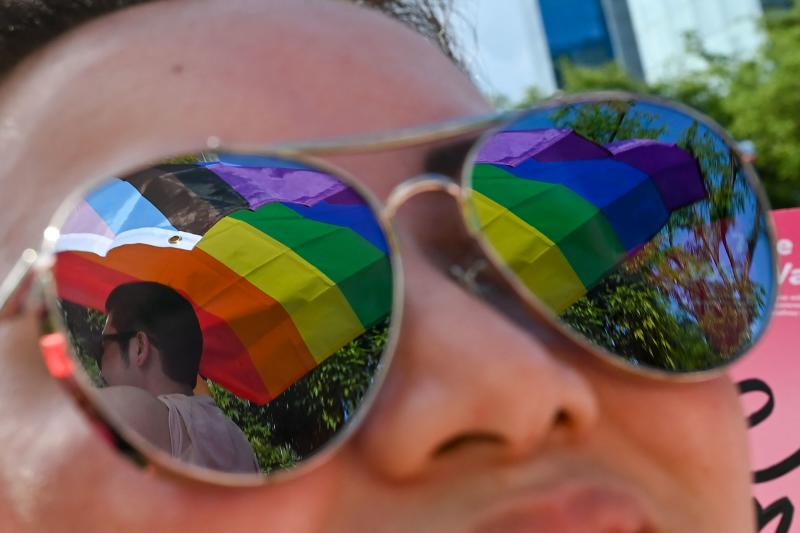
Singapore’s Law Minister said “cancel culture” rules may be included in legislation soon as the government looks to protect residents against online pressure over expressing views on topics including an ongoing debate on LGBTQIA2S+ rights.
The government is preparing to repeal a colonial-era law that criminalises sex between men while reinforcing traditional definition of marriage between a man and woman, sparking fierce reactions online.
“We should be encouraging people to be able to express their viewpoints on all sides as long as it’s not offensive and doesn’t descend to hate speech,” Law Minister K Shanmugam said in an interview with Bloomberg Television’s Haslinda Amin. “If we find the right solutions, yes, that should be something that we could see in legislation in the near future.”
In the past decade, the term “cancel culture” has been embraced globally by religious groups and political conservatives who are experiencing new, vocal opposition from historically marginalised groups and social liberals.
Shanmugam, who was one of Singapore’s top litigators until he became a cabinet minister, said the move toward cancel culture is a concern to the government based on a wide variety of issues aired in the country. Both religious and LGBTQIA2S+ groups have told the government they have been attacked online on this debate, he added.
“Religious groups, in particular, feel very put upon because they feel whenever they express their views they are attacked as homophobes,” he said. “So, there is a line between expressing your view on religion and becoming homophobic or engaging in hate speech against LGBT groups.”
Singapore is currently ranked 139th out of 180 nations in the world for press freedom this year, but the city-state’s lively online forums and blogs provide an alternative to mainstream media and are an avenue for social and government criticism.
Shanmugam said Singapore will go ahead with plans to enshrine the current definition of marriage in the constitution so that it cannot be challenged in courts. This has been widely seen as a compromise with conservative and religious groups and ensures that only a parliamentary vote can make future changes to that definition.
For now, most Singaporeans are against same-sex marriages though there was support for the planned repeal of the legal ban on sex between men known as Section 377A.
“A government has a duty both to lead but also to understand the people’s wishes,” Shanmugam said. “On 377A, the repeal, we are trying to forge as much of a consensus as possible and move forward on some social harmony on an issue that has torn asunder the social fabrics in many countries.”
- ‘More Challenging’ -
Shanmugam, who is also the home affairs minister, defended Singapore’s use of the death penalty for serious crimes, including drug trafficking. The government has to do right by the majority of Singapore citizens who support the death penalty, he said.
Singapore restarted executions after a two-year pause during the pandemic with ten hanged this year alone. One was a Malaysian man convicted for drug trafficking some three tablespoons of heroin into Singapore and his case drew criticism globally due to concerns over his mental capacity.
The city-state has consistently warned against a global easing of drug laws even after Thailand legalised cannabis and as Malaysia weighs decriminalising marijuana for medical use.
This would create more challenges for Singapore with regards to trafficking, though the regulations in place are adequate for now, Shanmugam said. “The more the availability of drugs, the more challenging it is to deal with it,” he said.
- Other highlights from the interview -
A bill passed to thwart foreign interference via local proxies is being implemented in stages. It gives officials the authority to order social media platforms like Facebook Inc and Internet service providers to disclose information behind harmful content they suspect may be carried out by foreign actors or entities.
“We have not yet seen substantial interference yet, but if it can happen to others, it can happen to us,” Shanmugam said.
The new political leadership helmed by prime minister-in-waiting Lawrence Wong will have to tackle the existential question over the city-state’s size, Shanmugam said.
“It doesn’t have a hinterland and doesn’t have the size of a substantial country” and that “will always impose very substantial challenges for its existence,” he said. “The new leadership will have to deal with that.”







